The real reason you're not sleeping, and how to fix it
Put these on the 'avoid' list
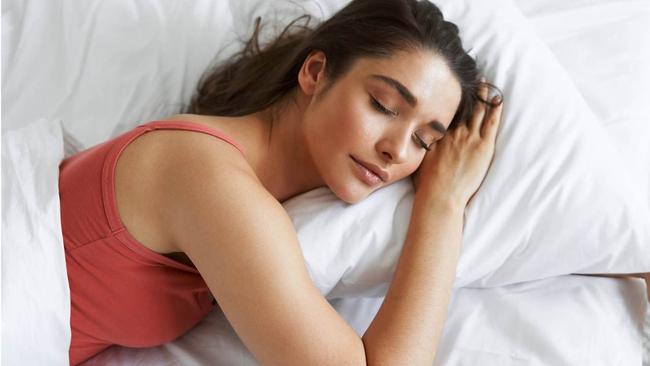
Lifestyle
Don't miss out on the headlines from Lifestyle. Followed categories will be added to My News.
A top sleep coach reveals the secrets to a good night’s rest (hint: trying harder only makes things worse, but what you eat can actually help).
Our articles are dedicated to helping you find the right product at the right price. We may receive revenue from affiliate and advertising partnerships for sharing this content and when you make a purchase. Learn more
It’s getting close to that sticky time of year, when warmer nights and far-too-early dawns play havoc with our sleep and even more people seem to struggle with insomnia than usual. And trust us, stats back up the hunch.
It’s estimated that four in 10 Aussies find sleeping a struggle, and this figure rises with age. In fact, chronic sleep symptoms persisting for three months or longer are shown to become more frequent once we hit our 40s.
Like what you see? Sign up to our bodyandsoul.com.au newsletter for more stories like this.
Why, exactly? When it comes to quality slumber, midlife has all the right ingredients for maximum disruption. For many folks, it’s when careers and financial pressures combust, intensified by the stress of having teenagers in the house, empty-nest syndrome or the simultaneous juggle of elderly parents.
For women, the hormonal chaos of perimenopause begins, and for everyone, melatonin production starts to gently decline while levels of cortisol, the hormone that’s responsible for waking us up, start to climb. Sleep becomes lighter, shorter and more fragmented, and we’re more likely to develop sleep-related conditions like restless legs syndrome and obstructive sleep apnoea.
Any of this sounding familiar? Don’t worry, you’re in good company.
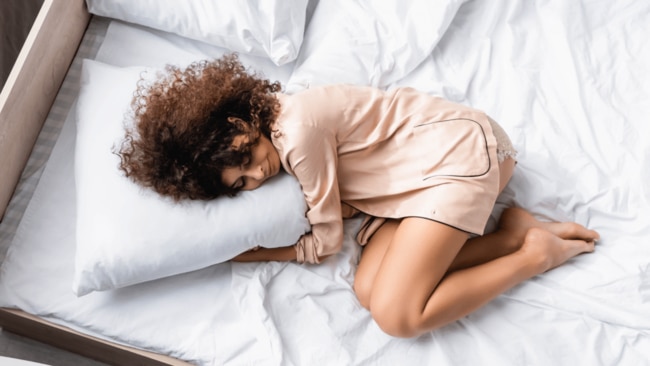
It can often feel like sleep issues are an inevitable part of life’s ticking clock, especially for women, who are twice as likely to suffer from insomnia than their male counterparts. Having been a shocking sleeper for most of my life, I’m not afraid to admit that I was apprehensive, but – and here’s the kicker – despite being a single working mother on the cusp of turning 50 and in the grip of perimenopause, I’m actually sleeping better than I ever have before. Want to know the reason why?
Three years ago, I had a midlife pivot from food writer to sleep coach and, perhaps unsurprisingly, solved my sleep issues in the process. Not by discovering the best-weighted blanket/white-noise machine/ pillow spray, but by gaining a deeper understanding of how sleep actually works and putting this newfound knowledge into practice.
Here are some of the valuable lessons I’ve learnt. But first, a word of warning: they could change the quality of your sleep forever – in the best possible way.
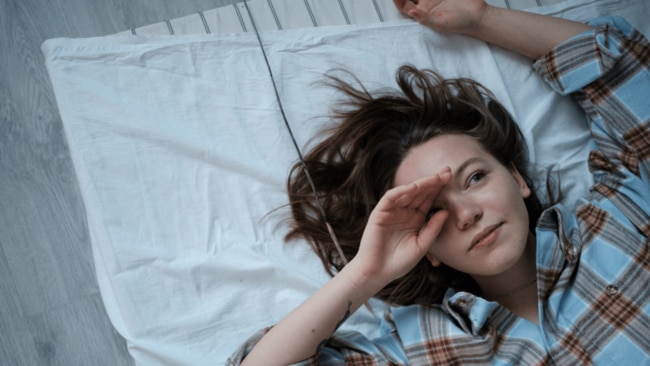
You may actually need less sleep than you think
It’s widely reported that we should all be getting a minimum of eight hours’ kip every night, but this is an average, not an ideal. How much sleep you need is as personal to you as your shoe size or eye colour, and trying to change it is like trying to be taller.
Furthermore, we naturally get less sleep as we age – studies show we lose approximately 30 minutes per decade starting at midlife – so even if you got eight hours regularly in your 30s, you will probably get less in your 50s.
But the most important thing to know? It’s the quality of the sleep you get, rather than quantity, that really matters. One definition of ‘enough sleep’ is when you have the energy to do the things you want to do most of the day, most days, so don’t worry about the hours and minutes or whether you fall short of misleading ‘recommendations’. Trust that you are probably getting enough, even if it’s shorter and a bit more broken than it used to be.
As you hit midlife you can expect to wake up in the night more often, because sleep becomes more easily disturbed as we age. This is normal; even the best sleepers wake up two to three times a night, but they usually don’t notice and go back to sleep. As well as more frequent awakenings, you may start waking up earlier than you want to because we become more ‘larkish’ as we get older. One theory? The part of your brain responsible for your circadian rhythm becomes less effective over time.
As Russell Foster, professor of circadian neuroscience at Oxford University, says: “Different sleep isn’t necessarily ‘bad’.” What matters now is how you react to this new nocturnal landscape. If you become anxious about it and try to fix the ‘problem’, it’s likely to start a spiral of bad sleep that will lead to more night wakings and even earlier starts. But if you can accept the changes relatively calmly and resign yourself to being awake a bit more, you’ll go back to sleep quicker and the sleep you do get will be more restorative.
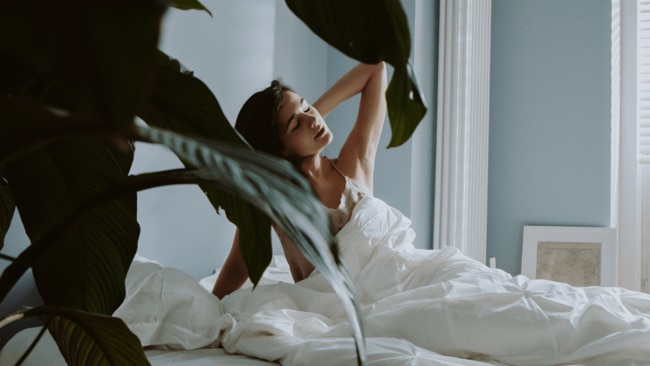
So-called sleep hygiene can make things worse
When sleep starts to go wrong, it’s a natural human instinct to try to fix the problem. In the 21st century this means googling “how to sleep better” and following advice found online. The more scientific-sounding guidance is what’s known as sleep hygiene, and it implies that if you follow all the ‘rules’ you’ll get a good night’s sleep. So you reduce the temperature inside your bedroom to 18˚C, make sure you have blackout blinds, go to bed at the same time every day, have a bath as part of your two-hour wind-down routine and switch off your devices an hour before bedtime… but despite doing all the right things, you still can’t sleep. It’s not that the advice is wrong, it’s just that it comes with the implication that it will magically send you to sleep.
The truth is nothing has the power to make that happen. Sleeping is a passive process and it can’t be controlled, however hard we try. A lengthy or convoluted wind-down routine can actually make things worse because it increases pressure and expectation, which leads to anxiety and frustration when we (inevitably) fail.
If you ask a good sleeper what they do to drop off, they’ll probably look at you blankly. If you ask an insomniac, there will be a long list of rules and rituals. Sleep works best if it’s left to its own devices, so you need to stop trying so hard to control it.
The real culprit could be 'hyperarousal'
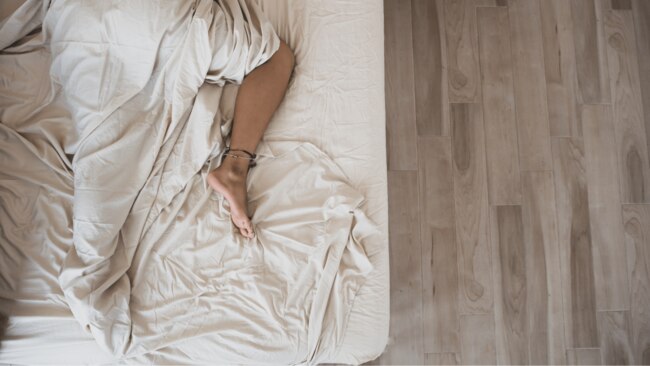
Allow me to introduce you to hyperarousal, the state of physiological high alert triggered by the fight-or-flight response and the real villain of this piece. As the name implies, hyperarousal is the opposite of relaxation and it’s what stops you sleeping, even when you are completely exhausted.
It’s also responsible for that ‘tired but wired’ feeling at bedtime, and for waking you up with an adrenaline rush in the middle of the night. Obvious triggers of hyperarousal include work stress and daytime anxiety – fuelled by the smartphones constantly at our fingertips – and caffeine, which artificially stimulates the arousal system. Unfortunately, a lack of sleep is also a trigger.
Not only will hyperarousal levels stay high overnight if you sleep poorly, but the brain sees being overtired as a vulnerable state and activates yet more to help you to get through the day.
The situation is further complicated by anxiety around not sleeping – the very act of worrying about going to bed or waking in the night can trigger hyperarousal, making it more difficult to nod off. Happily there are many ways physically to reduce your hyperarousal levels to let you sleep, and this starts a virtuous circle: the more you sleep, the less hyperarousal you have, which means the more you sleep, and so on.
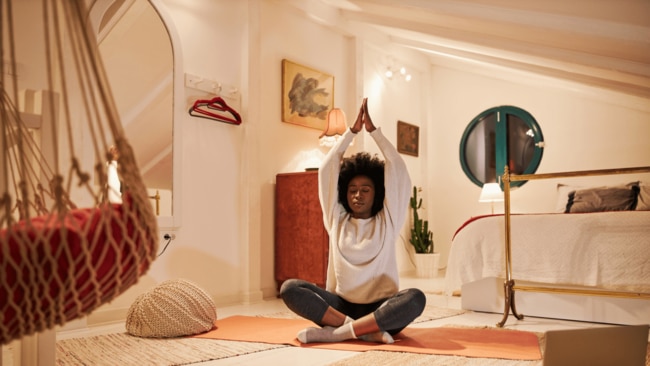
To beat it, try yoga, a worry diary or '4-7 breathing'
The key to reducing how much hyperarousal you take to bed with you is to find ways to handle your stress during the day or before bed. Effective exercises include slow breathing, yoga nidra, tai chi, progressive muscular relaxation, meditation or keeping a worry diary – where you write everything preying on your mind down on paper to switch off the amygdala, otherwise known as your brain’s ‘worry centre’.
Personally, I do five to 10 minutes of ‘4-7 breathing’ – breathe in deeply for four seconds and out for seven – in the evening while watching TV or just before I go to bed, and that seems to be enough to activate my parasympathetic nervous system, which is responsible for the ‘rest and digest’ response required for peaceful sleep.
It’s important to note here that, due to the slippery nature of sleep, none of these exercises are guaranteed to make you nod off tonight. But if you keep them up for 10 days, with the intention of reducing your overall levels of hyperarousal, better sleep should be a happy consequence.
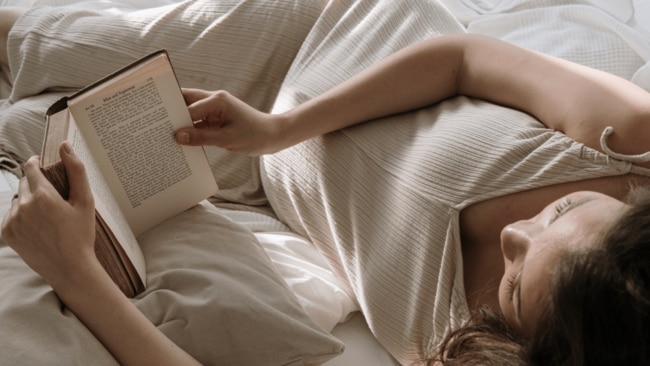
Have a middle-of-the-night wakeup strategy
I know firsthand that it isn’t always easy to be calm when you have woken up at 2:30am for the third night in a row, so I recommend that my clients line up something enjoyable to read, listen to or do, as soon as it’s clear they aren’t going to fall back to sleep quickly. Ideas include listening to audiobooks or podcasts, reading a book, looking at photos or videos on your phone, playing word games or even watching TV.
Don’t worry if what you choose to do involves a screen. Foster believes that the effect of the blue light emitted from smartphones has been widely exaggerated, and the small amount you absorb is “extremely unlikely” to affect sleep. It’s the content and time you spend on your device that acts as a stimulant, and your anxiety about not being asleep that keeps you awake.
So stay off social media, but go ahead and look at your phone or tablet if you think it will make it easier to accept your new sleep pattern.
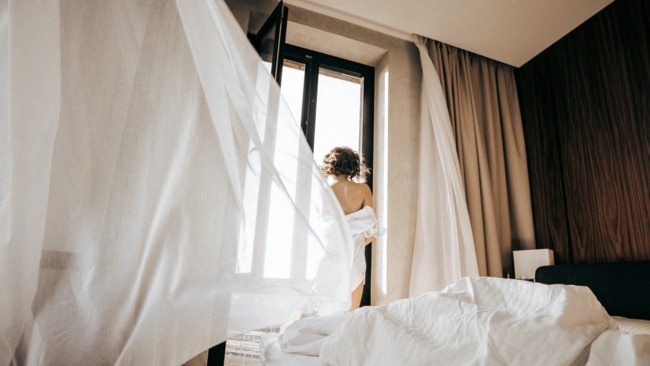
Don't worry about what a lack of sleep is doing to your health
As illogical as this sounds, there’s a very important distinction to be made between getting less sleep due to insomnia and the frightening headlines you may have read about the terrible long-term effects of sleep deprivation, such as cancer, Alzheimer’s and diabetes.
Insomniacs typically get the same amount of deep sleep as normal sleepers (about three hours), as the body adapts to prioritise it at the expense of light and REM sleep, snatching it whenever it can in the night. It’s this physically restorative deep sleep that protects insomniacs from any future long-term health consequences.
Health anxiety drives a lot of my clients’ sleeplessness, so it can be deeply reassuring for people to know this, and might stop a period of bad sleep developing into full-blown insomnia.
Yes, not getting enough sleep will leave you feeling exhausted, more anxious and possibly less cognitively competent temporarily, but it will not shorten your life. So take that off your list of things to worry about at three o’clock in the morning.
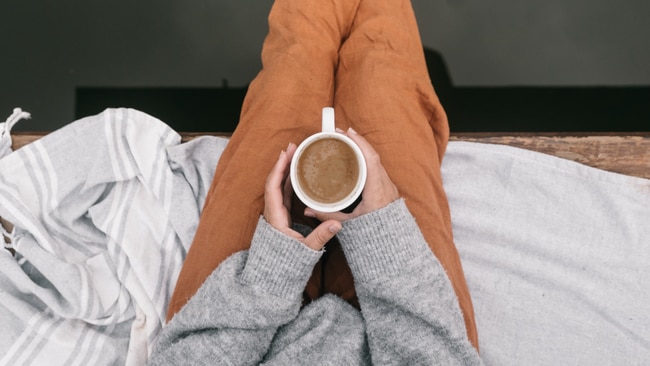
Rethink your afternoon coffee and evening wine
Though following most sleep hygiene rules isn’t helpful, there are a few concerning what we drink that become more pertinent in midlife and which are actually worth adhering to. As we age, we become more sensitive to caffeine and the speed with which it clears our system begins to slow down – on average it takes someone aged 65 to 70 around 33 per cent longer to metabolise – so it’s worth reducing your caffeine intake and restricting it to the morning if you’re having trouble sleeping.
Alcohol is another renowned sleep disrupter, and its effects get worse as our ability to process it becomes less efficient in midlife. But you don’t have to give up drinking completely, just stop earlier.
Having your last drink two to four hours before bed will give your body a chance to process it, reducing the likelihood of those awful, angst-ridden awakenings that alcohol can induce. I get my clients to work out their own cut-off point through trial and error.
Nocturnal urination increases with age, so it makes sense generally to drink less liquid in the evening if you find yourself waking to pee more than once a night. And maybe forgo that cup of chamomile tea just before bed if you want to make it through until dawn.
Four clever tools to help you snooze
From white noise and wearables to a light that mimics the dawn, sweet dreams are made of these.
Koala Cloudy Pillow $155, koala.com
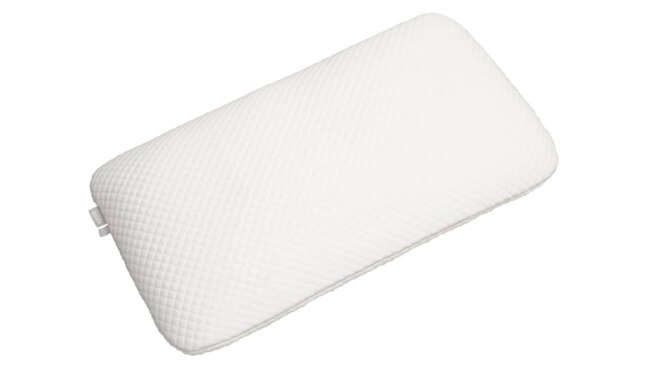
Upgrade your slumber by resting your head on a cloud – literally. Perfect for every sleeper and snooze position, Koala’s ‘Cloudy’ pillow gives you that soft, fluffy feeling of down – minus the feathers.
Lectrofan Sound Machine $60, target.com.au
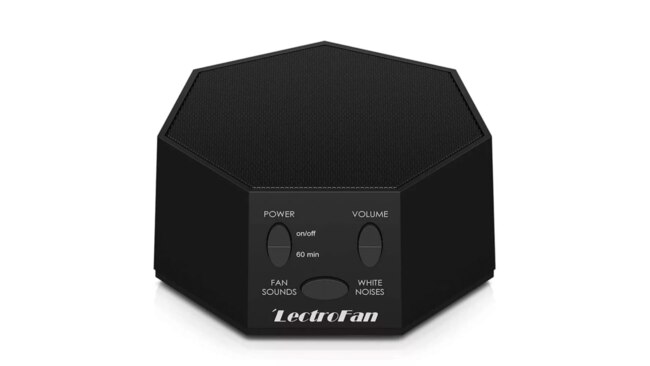
Fitted with a 60-minute timer and a choice of pink-, brown- or white-noise sounds, this compact sleep device will distract your mind from all those thoughts racing through your head.
Philips Smartsleep Sleep and Wake-up Light $180, amazon.com.au
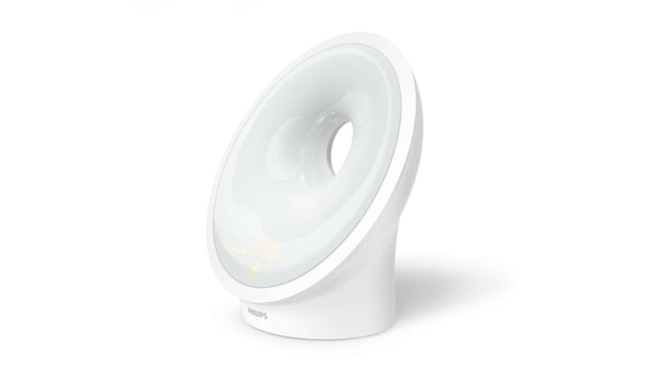
Find your ideal sleep routine with this genius lamp that brightens as the sun rises in the morning. It also boasts light-guided breathing, personalised settings and a soothing sunrise alarm.
DreamOn Sleep Band $230, amazon.com.au
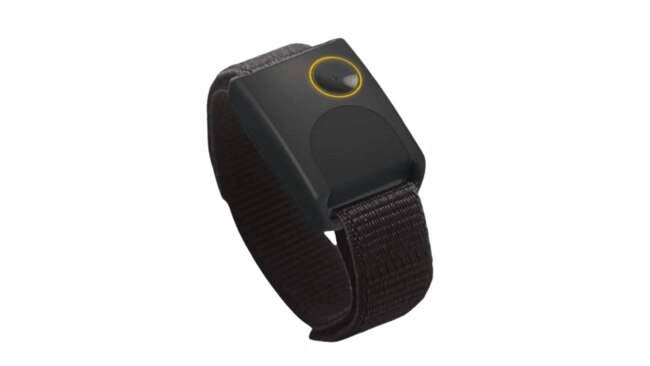
This wearable tech will help you fall asleep with ease. It sends gentle pulses throughout the body believed to relax the nervous system, plus it tracks your sleep patterns and even plays sounds to help you unwind.
Originally published as The real reason you're not sleeping, and how to fix it


